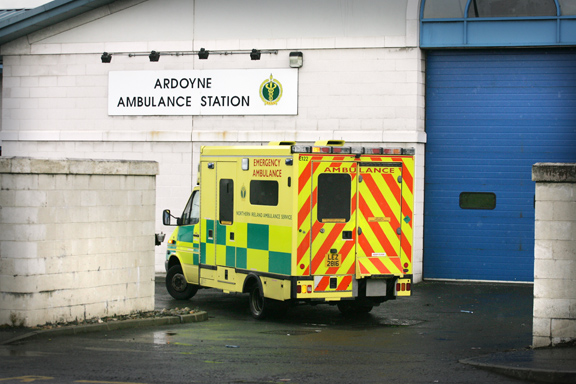We’ve been in close contact in recent weeks with ambulance staff as we covered the industrial stoppage of Friday, May 13 and the controversial decision of Ambulance Service management to declare a major incident two hours before crews were to due to go on strike, writes our diarist Squinter in his sideways look at the week.
In our efforts to build up a picture of how the service operates and in talking to frontline crews about demands on staff and resources, we’ve learned that while of course unexpected emergencies can and do occur, the key pressure points in a typical year are in fact readily identifiable.
Extra resources are routinely put in place to cater for the upsurge on dates when the number of assaults, accidents and injuries across the city requiring an ambulance call-out rise sharply. Here we outline what are traditionally the six busiest days of the year for already hard-pressed ambulance crews. All six are supposed to be days of celebration, yet there’s little to celebrate in what paramedics see in the evening and the wee small hours. The calendar dates are varied and reflect the cultural and social mix of the city, but what unites them is the issue of all-day drinking and its grim aftermath. Here’s the list of six in ascending order (No.1 being the busiest); the positions on the list may vary slightly from year to year, but the main contenders are unchanging.
- Mother’s Day. With the black humour that allows paramedics to do an incredibly stressful job, the fourth Sunday in the season of Lent is known as ‘Murders Day’. While women may bristle at being on the list, given that men and alcohol make for a much more combustible mix, there’s actually a relatively benign reason for the inclusion of Mother’s Day. Mothers are – relatively speaking – unused to binge drinking in pubs and clubs as the demands of running a home weigh disproportionately on their shoulders. A celebratory lunch often runs into the late afternoon or evening and groups of women unused to drinking in such amounts often get… boisterous, shall we say?
- Sunday before May Day. It’s not just red flag-waving socialist firebrands who take the chance of a Monday lie-in to drink to excess on the evening before the celebration of the working man and woman. Most working people – whatever colour their collar – are inhibited in their Sunday drinking habits by the start of a new working week, choosing to lay off or go easy. Indeed, May Day is a moveable feast precisely because it must always give workers the first day of the week off and therefore can never take place on a weekend. Add to that the fact that for many it’s the unofficial start of summer and the potential for over-indulgence is there for all to see.
- Eleventh Night. There aren’t many in the city not familiar with the Homeric amounts of alcohol taken over the Twelfth celebrations, but the big day begins the day before when the bonfires are lit. Heavy drinking begins – as a drive through any loyalist area will confirm – early in the day, either in pubs or clubs or al fresco if the weather’s fine. And, late in the day, added to the usual 999 staples of ‘fights and falls’ is the problematic presence of massive burning pyres in close proximity to large crowds of mostly drunk people.
- St Patrick’s Day. Ambulance crews we spoke to were appreciative of the efforts of the two universities to combat drunkenness in the Holyland and other areas of high student occupation. The problem remains, of course, but uncompromising sanctions put in place by Queen’s and the University of Ulster are having an effect. The city centre setpiece event is well organised and controlled to a high professional standard, but in outlying areas of the city – West and North Belfast in particular – heavy all-day drinking in pubs and clubs is a growing problem, while the familiar sight of on-street drinking by tricolour-draped young people, many of them underage, is similarly on the rise.
- New Year’s Eve. A day of massive celebrations the world over, it is also for many the last blow-out of the busy festive holiday season. It’s also a time when, for a raft of personal reasons, people are apt to get extremely emotional – and high emotion and strong drink do not make for easy companions. Large numbers of people are out and about all over the city and therefore kicking-out time – always a busy period for police and ambulance staff – becomes exponentially more of an issue. Add to that the perennial problem of large numbers of inebriated people competing for a limited number of available taxis and it’s almost the perfect public order storm.
- St Stephen’s Day. Christmas Day is generally spent at home because Christmas is a day for the family, isn’t it? (And not, perish the thought, because most pubs and clubs are either closed or on restricted hours.) But Boxing Day is a horse of a different colour – a racehorse, in this case. After having done their Christmas duty by their families, men (for this is an overwhelmingly male tradition) head out in their droves early in the day to watch the full programme of football and national hunt racing live on TV – and to gamble and drink. And for too many, the odds are that it’s going to end in tears.





